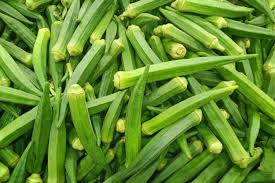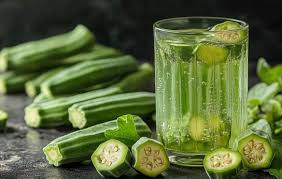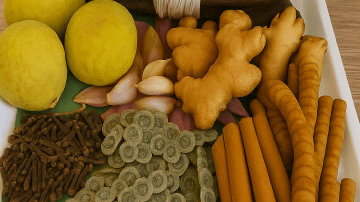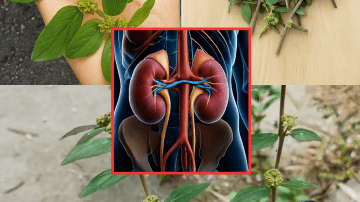The Slimy Secret: Why This Ancient Pod Deserves Your Undivided Attention 🚀
Okra. For some, the word conjures images of vibrant Southern stews or satisfying Indian curries. For others, it’s the dreaded “slimy” vegetable they’ve meticulously avoided their entire lives. But what if that very characteristic you fear is actually the key to unlocking a treasure trove of unprecedented health benefits? This unassuming green pod, a staple in global cuisine for millennia, is quietly one of the most powerful superfoods you can add to your diet. It’s far more than just a culinary curiosity; it is a nutritional and medicinal powerhouse poised to revolutionize your gut health, blood sugar control, and overall vitality.

Before you dismiss it, or enthusiastically toss it into your next meal, there are 10 essential, game-changing facts you absolutely must understand. We’re moving past the folklore and diving into the hard science, explaining why okra is a diabetic’s friend, a digestive system’s champion, and a weight manager’s secret weapon. We’ve designed this guide to be the definitive resource that not only educates you but completely transforms your perception of this vegetable, ensuring you read every single point and stay on this page until you’ve mastered the art and science of the okra pod. Get ready to discover the truth behind the mucilage, the hidden fiber, and the potent compounds that make okra one of the most fascinating and beneficial additions to your nutritional arsenal.
The Decoded Ten: Essential Knowledge for the Okra Initiate 🧠
Here are the ten crucial facts—from the scientific to the practical—that will empower you to add okra to your diet with confidence and maximize its incredible benefits.
1. The Mucilage is Your Health Hero, Not Your Enemy 💧
- The Slime Factor: Okra is infamous for its sticky, gelatinous substance called mucilage. But this isn’t a defect; it’s a feature! Mucilage is a soluble fiber and a unique polysaccharide.
- Gut Health Mastery: In the digestive tract, this mucilage acts like a soothing balm. It coats the stomach and intestines, promoting healthy gut lining and aiding in the smooth passage of food.
- Toxin Binder: Crucially, mucilage is highly effective at binding to toxins, cholesterol, and bile acids in the gut, ushering them out of the body before they can be absorbed, contributing to lower cholesterol and effective detoxification.
2. It’s a Blood Sugar Regulator and Diabetes Ally 🩸
- The Absorption Buffer: Okra is scientifically proven to help slow the absorption of sugar in the intestinal tract. The mucilage literally traps sugars, delaying their entry into the bloodstream.
- Stable Insulin Response: This slow release of glucose means a more stable blood sugar curve, preventing the dangerous spikes and crashes often seen after carbohydrate-rich meals. This makes okra an extremely valuable dietary tool for managing Type 2 Diabetes and maintaining metabolic health.

3. Okra is a Hidden Powerhouse of Folate (Vitamin B9) 🌱
- Fetal Development and Cell Growth: Okra pods are an excellent source of Folate. This B vitamin is critical for DNA synthesis, cell division, and repair.
- Pregnancy Essential: For pregnant women, adequate folate intake is vital for preventing neural tube defects in the developing fetus, making okra a highly recommended addition to a prenatal diet.
4. The Fiber Content is Explosive (Both Soluble and Insoluble) 🌾
- Digestive Double-Duty: Unlike many vegetables that offer just one type, okra provides significant amounts of both soluble (the mucilage) and insoluble fiber.
- Constipation Destroyer: The insoluble fiber adds bulk to stool, ensuring regularity and preventing constipation, while the soluble fiber acts as a prebiotic, feeding the beneficial bacteria in your colon. This combined action ensures optimal digestive performance.
5. It’s a Potent Source of Antioxidants 🛡️
- Quercetin and Catechins: Okra is rich in powerful antioxidant compounds, particularly Quercetin, Catechins, and Rutin.
- Cellular Protection: These antioxidants combat free radicals in the body, reducing oxidative stress, lowering chronic inflammation, and providing protection against cellular damage that leads to aging and disease.
6. The Secret to Eliminating the “Slimy” Texture (Cooking Hacks) 🔪
- Acidity is the Answer: The mucilage becomes less noticeable when exposed to high heat or acid. To minimize sliminess, cut the okra and cook it quickly at a very high heat (like stir-frying or grilling) or cook it with acidic ingredients like tomatoes, vinegar, or lemon juice.
- Dry Method: Another trick is to cook the pods whole and uncut. By not slicing the pods, you prevent the release of the mucilage. Frying whole okra or adding it whole to a robust curry minimizes the sliminess dramatically.
7. Okra’s Contribution to Strong Bones (Vitamin K) 🦴
- Calcium’s Partner: Okra contains a solid amount of Vitamin K, a fat-soluble vitamin essential for bone health.
- Osteoporosis Prevention: Vitamin K helps the body absorb calcium and plays a critical role in bone mineralization and blood clotting. Consistent intake supports the maintenance of strong, dense bones, aiding in the fight against osteoporosis.
8. The Unconventional Link to Cardiovascular Health ❤️
- Cholesterol Reduction: As mentioned, the mucilage binds to cholesterol and bile acids, facilitating their excretion. This natural scavenging effect contributes directly to lower LDL (“bad”) cholesterol levels.
- Magnesium Power: Okra is a good source of Magnesium, a mineral essential for regulating blood pressure and maintaining a healthy heart rhythm.
9. You Can Eat the Seeds (And You Should!) 🌰
- The Protein Punch: Many people discard the seeds, but okra seeds are edible and contain a valuable amount of protein and healthy, unsaturated fats.
- Seed Oil Potential: Okra seed oil is even used in some regions and is a great source of linoleic acid, which is beneficial for skin health and inflammation management.
10. Freshness is Critical for Flavor and Texture 🥕
- How to Choose: Always look for okra pods that are bright green, firm to the touch, and relatively small (under four inches long). Large pods tend to be tough, woody, and less flavorful.
- Storage Secrets: Store okra unwashed in a paper bag in the refrigerator for no more than three or four days. Washing introduces moisture, which accelerates the sliminess and spoilage.

The Okra Masterclass: Integrating This Superfood into Your Life 🍽️
Understanding the facts is the first step; mastering the preparation is the second. Here are professional techniques to make okra a delicious, regular part of your diet.
- Roasting Revelation: Toss whole or halved okra with olive oil, salt, and pepper and roast at 400°F (200°C) until tender-crisp. The high heat virtually eliminates the sliminess and brings out a wonderful, nutty flavor.
- The Vinegar Soak: Before cooking, wash the okra and soak it in a bowl of vinegar and water for about an hour. Rinse and pat dry thoroughly before proceeding with your recipe. The vinegar helps neutralize the mucilage before cooking begins.
- The Gumbo/Stew Advantage: If you actually want the thick, silky texture, as in traditional stews like gumbo, slicing the okra and simmering it slowly in liquid is the best way to leverage the mucilage as a natural, low-calorie thickener.
The Final Verdict: Embrace the Pod, Embrace the Power 👑
The decision to add okra to your diet is a decision to embrace a surprisingly potent, multi-faceted superfood. By understanding the science behind the mucilage, the blood sugar benefits, and the powerful antioxidant profile, you can now confidently bypass the common misconceptions. Okra is a champion of the gut, a guardian of the heart, and a regulator of metabolism. Take these ten facts, apply the simple cooking hacks, and transform this humble vegetable into a cornerstone of your vibrant health strategy.
🔥 Ready to try an okra recipe? Would you like a recipe for a roasted, non-slimy okra dish?






